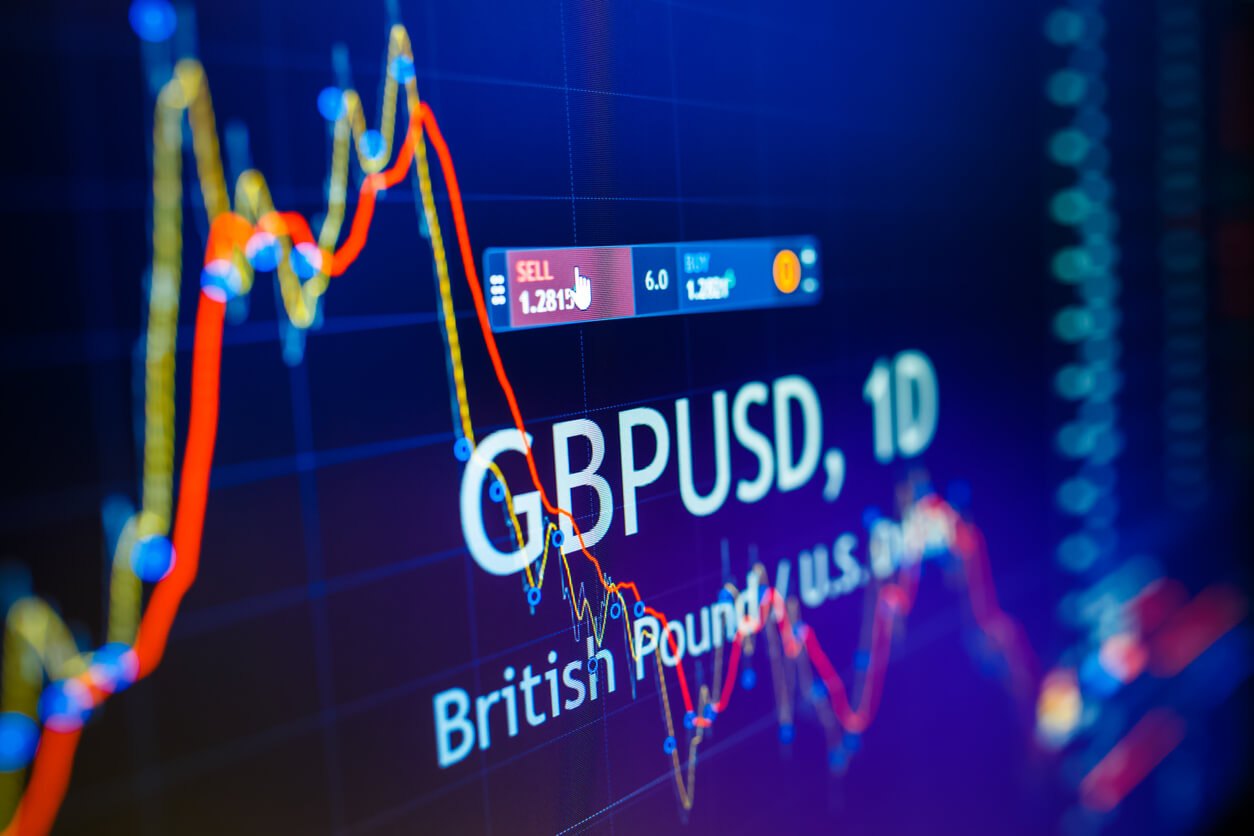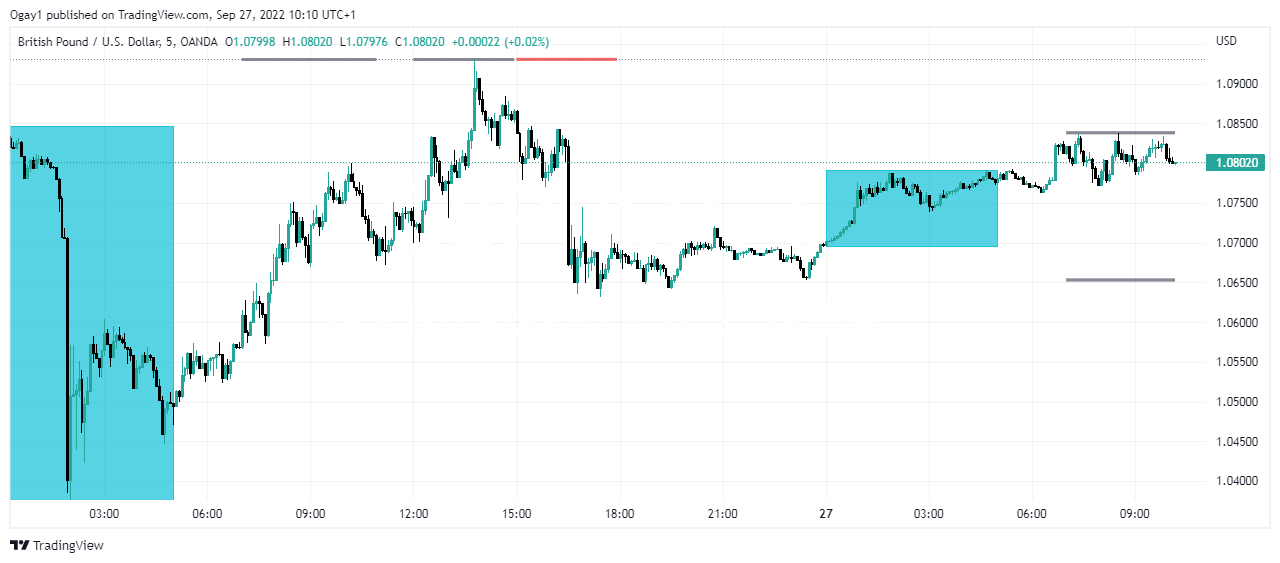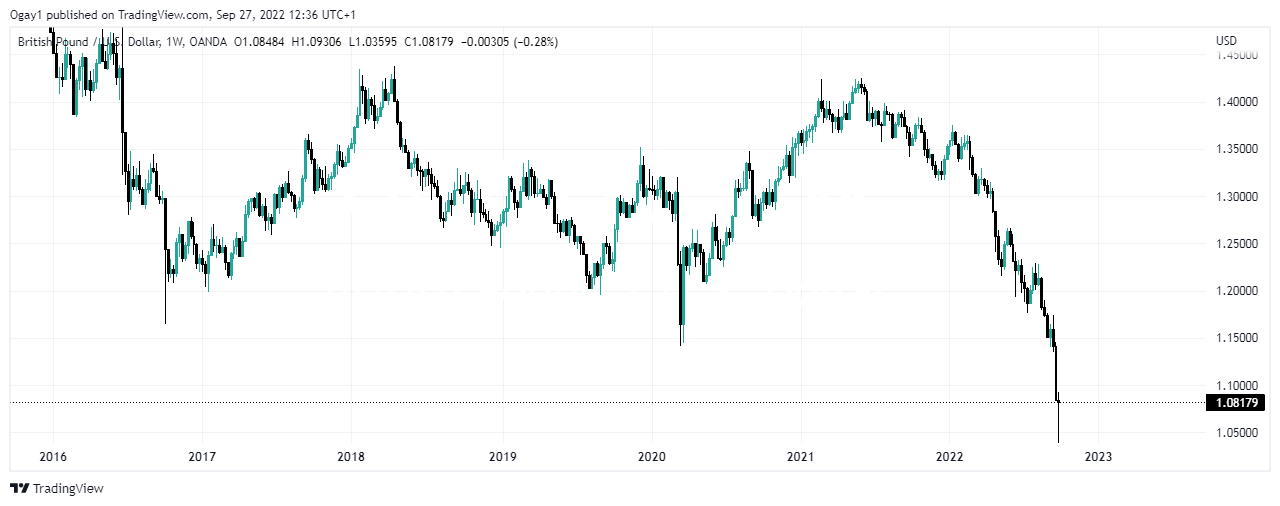Success Stories
How To Invest in British Pound (Top 5 Ways)
How To Invest in British Pound: On Monday, the British pound’s value versus the US dollar fell to a record low. It took place after the British…

How To Invest in British Pound: The Unified Realm’s official currency is the English Pound, also referred to as Pound Authentic (additionally called the UK and Extraordinary England). The cash code and sign for the English pound are GBP and £.
Due to its proximity to the European Association, GBP trades with the Euro are the most well-known. It is all the most value UK, explorers should buy English Pounds. On the mysterious trade market, currency in every country in the globe is constantly exchanged (forex). Some people simply see it as a way of converting one type of currency into another.
These commercial hubs are essential to universally active international businesses that trade in several forms of money. Additionally, there are dealers who speculate on how different types of currency will fluctuate in relation to one another.
The value of the British pound is falling rapidly: Here Are The Implications For Investors.

How To Invest in British Pound
How To Invest in British Pound:The British pound has reached its lowest ever exchange rate with the US dollar. It followed the announcement of a number of tax cuts and investment incentives by incoming Prime Minister Liz Truss, whose goal was to jump-start the lagging British economy. The nature of the reduction makes it likely that the wealthiest people will profit the most, putting the “trickle-down economics” theory into practice in a traditional way.
Truss defeated former Chancellor (the UK government budget and finance department), Rishi Sunak, to become the new leader of the right-wing Conservative Party after former Prime Minister Boris Johnson was forced from power by a vote of no confidence from his own party.
For party supporters, Sunak had portrayed a bleak picture and strongly advised against Liz Truss’ proposed policy. But Party members ultimately decided to support the Truss administration’s growth-oriented policies, and thus far it appears that their decision is starting to bite them.
What specifically occurred to the British pound, what brought it about, and what does this represent for US investors?
READ MORE: Top 10 Richest People In UK (2022)
What has happened to the pound?
The pound has marginally recovered throughout Monday’s trading, but in the early hours of Asian trading, it touched an all-time low of $1.0327. Traders and speculators can transact in currencies at different exchanges across the world during the 24 hours the foreign exchange market is open.
The pound was trading at roughly $1.07 throughout the London session on Tuesday while this article was being written.

How To Invest in British Pound: GBPUSD_2022-09-27_10-10-32
Even with this comeback, the currency is still down almost 7% over the last two days after falling as much as 5% at one point. The changes have been so abrupt that there have been whispers that the Bank of England, the British equivalent of the Federal Reserve, may need to intervene with a rate increase in response to the emergency, which some have suggested may be as high as 2 percentage points.
With rates, this high, investments denominated in pounds and foreign currencies would become considerably more alluring. This would raise the UK base rate to 4.25%. While this would probably steady the value of the currency, it would also ruin things for people and businesses because the cost of debt would suddenly increase. The UK would experience it at a time when energy prices are at all-time highs and overall inflation is out of control, as is the case for the majority of the rest of the world.
What is the theory behind trickle-down economics?
Tax cuts for corporations and the wealthy are supposed to gradually “trickle down” to the rest of society.
These new reforms have just reduced the highest rate of income tax in the UK from 45% to 40%. As a result of the adjustment, anybody making over £150,000 (U.S. $161,829 at the time of writing) will save around £10,000 (U.S. $10,787). A person making £1 million ($1.080 million) annually will have an extra £55,000 ($59,404) in their pocket.
The idea is that after that, these people will have more money to spend. This can entail more trips, more cars, more restaurant meals, or house modifications. The economy could then benefit from this increased spending since firms would earn more money. Businesses will need to hire more personnel as demand and income rise, which will help the labor market and start to raise salaries.
Higher incomes are more likely to spend additional money because they perceive it as “free money,” which makes them more motivated to do so. Their regular income already covers all of their essential expenses, so they are less likely to divert it into a savings account or retirement investment.
Will it thus go as planned?
The key query here is “what?” There is no definite solution, much like with the majority of economic theories. With billions of moving pieces, economies are incredibly complicated. No matter how successful it may have been in the past, it doesn’t necessarily follow that it would work the same way in the future.
What Do Investors Need To Know About The British Pound’s Decline?
How To Invest in British Pound: In the UK, the immediate repercussions of these actions are having a significant impact. Bond prices are plummeting as a result of the swift currency decline. What does that entail for American investors, though?
Well, any worldwide investment funds will probably have some exposure to the UK market to begin with. These problems could spread to the already ailing eurozone, which would increase volatility in international investments.
It also emphasizes some of the difficulties governments currently face in managing the high inflation, low growth environment. If similar legislative changes were made, the shock being experienced in the UK might be repeated in the U.S.
Not that those are something we will likely see anytime soon. On Twitter on last Tuesday, Joe Biden expressed his frustration with trickle-down economics, writing that “it has never worked.”
So how should investors currently navigate the markets? Currently, problems are getting worse all across the world. Although life in the United States is not always sunshine and rainbows, it is still better than much of the rest of the world.
That is especially evident when you consider how significantly worse the American stock market has done than that of other developed nations. The S&P 500 has lost about 23% of its value so far this year, while the FTSE 100 of the UK has lost just over 6%.
Exchanges between banks, dealers, and the clients they serve take place in the currency market. The summary that follows outlines five ways a retail financial investors can interact with this sector and how to invest in the british pounds.
1. Exchange of Currency
Financial investors can swap different forms of currency and document transactions with a forex agent. In contrast to the American stock exchanges, this market operates in a variety of ways:
A financial investors makes a bet when exchanging financial form coordinates that one will appreciate while the other will depreciate in value.
- There are no centralized clearinghouses for trading and no regulated cash transactions.
- When taking short positions, the increase rule has no bearing.
- There is no maximum limit to a position’s size.
- Instead of commissions, the bid-ask spread is the main source of income for cash merchants.
2. Overseas Bond Funds
Foreign government bond investments are made through mutual funds. These mutual funds receive foreign currency-denominated interest payments. The interest earned rises when converted back to local currency if the value of the foreign currency rises relative to the local currency.
Investors can choose their chosen level of risk when buying foreign bonds and pursue higher yield. Merk Hard Currency Fund, Aberdeen Global Income Fund, and Templeton Global Bond Fund are a few examples of such funds.
3. The ETF and ETN
ETFs and ETNs, which are exchanged like stocks and can be used to invest in the British pounds without having to deal in foreign exchange products. Investors can purchase access to currency ETFs like EUO, the ProShares UltraShort Euro, or UUP, the Invesco DB US Dollar Index Bullish Fund, using a basic investing account with the majority of brokerages.
ETNs are comparable to corporate bonds, although they frequently share ETFs’ exposure to the foreign exchange market. Investors can discover common currency ETNs, such as the iPath® GBP/USD Platform Rate ETN, on the same exchange as they trade ETFs (GBB)
4. International Businesses
Through their ownership of corporations that conduct a sizable portion of their business abroad, many investors have an indirect interest in the foreign exchange markets. Coca-Cola, McDonald’s, IBM, and Walmart are a few of the more well-known American businesses having international visibility.
If the foreign currency gains in value relative to the dollar, the revenues and profits generated by international operations will increase. For financial reporting purposes, those revenues must be converted back into dollars, and a stronger foreign currency will fetch more money in return.
5. Money Market Accounts and CDs
A WorldCurrency certificate of deposit (CD) from TIAA Bank offers interest that is paid at the country-specific local rate. Additionally, a foreign currency account that acts similarly to a money market account and permits the movement of funds between major currencies is offered, along with a basket CD that combines a variety of different currencies.
Although the CDs’ interest rates are higher than those offered by CDs denominated in dollars, they are vulnerable to changes in exchange rates. If the dollar appreciated against the British pounds before the CD matured, investors would get less money than they had initially put in. The FDIC insurance covers bank insolvency but excludes currency risk.
READ MORE: Top 10 Best Long Term Investments For Building Wealth
What Caused the Sudden Crash of the Pound?

How To Invest in British Pound: GBPUSD_2022-09-27_12-36-05
Together with promises for significant borrowing, Britain’s most drastic tax cut proposal since 1972 has caught financial markets off guard and sent the pound down to record lows. The unconventional steps are intended to jump-start economic expansion.
Nevertheless, the mini-budget presented on September 23 sparked worries that it would worsen inflation, threaten state finances, or possibly spark a full-scale currency run, putting pressure on the central bank to intervene.
What caused the pound to fall?
The tax cuts reduced the top rate of income tax as well as corporate tax and other levies, which was more than experts had anticipated. Prime Minister Liz Truss, who assumed office less than three weeks ago, claims that the measures will jump-start the economy, prevent a recession, and help the UK end a decade of underperformance.
The pound dropped more than 3% to its lowest level since 1985 shortly after her Chancellor of the Exchequer, Kwasi Kwarteng, revealed the plans. The currency quickly fell another almost 5% to an all-time low of $1.0350 after his statement two days later in a BBC interview that there was “more to come,” before rising back above $1.07.
What is the setting?
The Bank of England is trying to control inflation, which was 9.9% in August, close to a 40-year high and over five times the central bank’s objective. There is concern that the burst of fiscal stimulus would worsen pricing pressures at the same time. Investors are also worried that the new budget will lead to an unsupportable level of national debt.
Emergency spending brought on by the epidemic, rising energy prices as a result of Russia’s conflict in Ukraine, and expenses related to the Brexit vote had already put a strain on the state’s budget. That was on top of years of the country having low productivity in comparison to its nearest EU competitors.
What does this mean for the future of the UK?
Because of its enormous current-account surplus, an export powerhouse like Japan is better able to handle a period of currency weakness. With one of the greatest current-account deficits in the world and an already considerable budget deficit that is expected to grow after Kwarteng’s revelation, the UK is in a similar situation to some emerging nations.
In normal years, foreign investment in UK real estate and other assets tends to support the pound. But there are more and more reasons not to invest in the UK due to the economy’s sluggish growth and rising volatility. Truss’ party lawmakers have said that in order to calm the market, the BOE may need to intervene with an emergency rate hike.
What strategy does the government have?
The goal of the tax cuts is to make the economy more vibrant, which should eventually result in increased tax revenue and limit borrowing. Even among its admirers, the new Conservative government’s proposals have drawn comparisons to Anthony Barber’s disastrous 1972 budget, which included a sizable package of unfunded tax cuts.
Kwarteng was Anthony Barber’s Tory predecessor. In his instance, the economy overheated and inflation rose before going into a recession. Two years later, the Labour opposition ousted Barber’s employer, Edward Heath, and the UK was forced to request a bailout from the IMF in 1976.
After implementing a series of tax measures in the late 1980s, Nigel Lawson, another of Kwarteng’s predecessors and the Chancellor under the government of then-Prime Minister Margaret Thatcher, also had to deal with the problem of growing inflation.
Summary
Here is the summary of How To Invest in British Pound
- Exchange of Currency
- Overseas Bond Funds
- The ETF and ETN
- International Businesses
- Money Market Accounts and CDs
